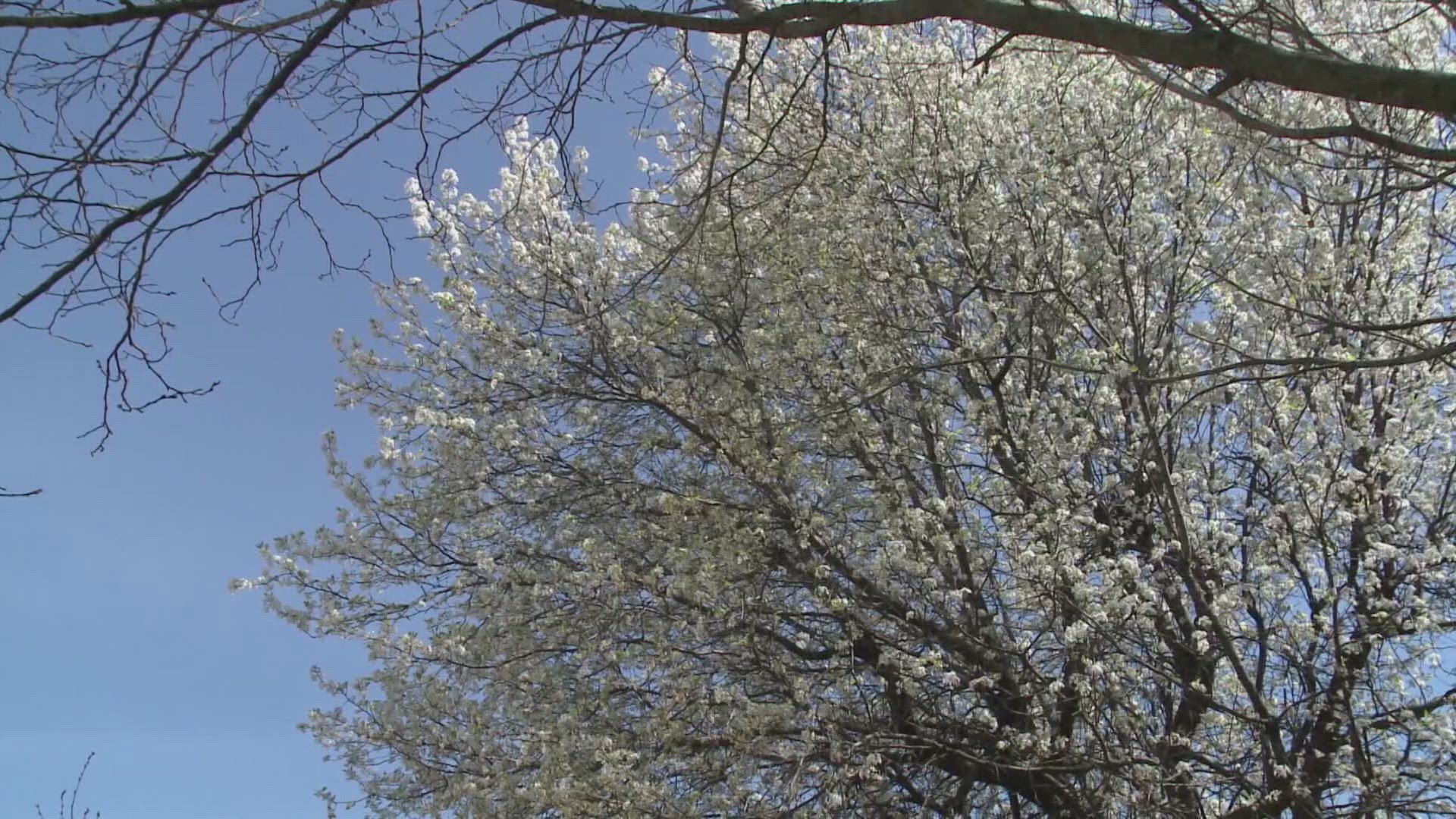SEYMOUR, Tenn. — They’re a nuisance during the spring across East Tennessee and they're known for their pungent scent. It's not a bug — instead, Bradford pear trees have continually been the focus of criticism and warnings from people across the region.
Not only can they be unpleasant, but for farmers, they can be an expensive problem.
Thomas Cowan grew up on a farm in Seymour. He said the number of Bradford pear trees on his farm has grown over the years.
"In the beginning, they weren't too bad,” said Cowan. “They were kind of in the fence rows, you know? But it was more, they spread more They got out into the hay fields and pasture fields."
Thomas said the problem isn’t only on his farm — it seems as if they’re everywhere.
"All over the county. I mean, everywhere you can go from here to Maryville," said Cowan. "And you'll see in the fence rows, roadsides, everywhere all the way down through there."
David Vandergriff, a consulting arborist and horticulturist, said the trees were initially brought to America in the early 1900s from Asia. He said researchers wanted to breed a more disease-resistant tree, and they quickly became used for landscaping because of their hardiness.
“They became popular in the late 50s, early 60s, and just kept becoming more popular and they more widely planted," he said.
The Tennessee Invasive Plant Council has named the Callery pear family as an established threat. Bradford pear trees are a variety of Callery pear, and by naming them an established threat the council said the trees escaped from cultivation and have become natural in the wild.
"And that's the problem that is really the main concern now, their invasiveness," said Vandergriff. "And that's because where they were promoted to be sterile, they wouldn't pollinate and produce fruit and other trays. That's true for that particular cultivar. But as we started planting other cultivars, then they could cross-pollinate each other.”
Cowan said they cause problems on his farm, from flattening tires to harming his cattle. He said his cattle use the trees for shade, but the tree’s thorns are sharp.
"You walk up to the tree, it's gonna scratch you and they're scratching on these trees," said Cowan. "And then, you know, if the barbs fall on the ground, and they step on them, then they got an infected foot."
Vandergriff also said the trees are costly for farmers like Cowan.
"Whenever a farmer has to spend money on buying herbicides, to try to control the sprouts, if they try to cut the things out, then that's money that he can't spend on fertilizer or something. Together, more necessary expenditures go into this farming operation," said Vandergriff.
He said because they’re not native to the U.S., the Bradford pear tree does not have competitors in nature in East Tennessee.
"Ecologically, they’re a huge problem," said Vandergriff. "The take up space in the landscape, they crowd out other things. They are not a particularly good food source for a lot of our native wildlife because they're not native to here.”
Vandergriff said there are things people can do to get rid of these trees, but said simply cutting them down doesn’t solve the problem. As long as the root system is still there, he said the tree would keep growing back.
He said often, multiple trees will grow from the same roots.
"If you get them out, you really need to treat them with herbicide whenever they're cut," said Vandergriff. "There's several chemicals that are labeled to do that. And no matter which county you're in, if you talk to your extension agent in your particular county, they can give you recommendations.”
Some states are even working to ban these trees.
"Ohio, Pennsylvania, and South Carolina have outlawed them. Kansas, Missouri have the pending legislation," said Vandergriff. "North Carolina has a program that they will give you a replacement tree if you take the lawn out and bring in proof that you've taken it out."
Vandergriff also said similar legislation could happen in Tennessee.
"It could happen everywhere, and probably will over time," said Vandergriff. "Because the sooner we can address the issue, the better off we're going to be."
He said the best thing for people in East Tennessee to do to address the Bradford pear tree problem is reach out to lawmakers.

